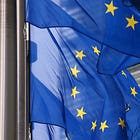How the UK can seize on Trump’s immigration mistakes
Opinion: The H-1B visa changes present a generational opportunity for the UK to scoop up AI talent, Julia Willemyns argues
Washington has just made life significantly harder for foreign workers. A $100,000 fee now applies to H-1B visa petitions made from abroad, while proposed reforms would prioritize higher-paid petitions in the selection process within job categories. Combined with an increasingly unstable funding environment, the US is becoming an increasingly unattractive place for foreign talent. That presents a generational opportunity for Britain.
Global talent flows, particularly in AI, have long favored the US — a major competitive advantage over other countries. Immigrants and their children founded 46% of today’s Fortune 500 companies and over half of US unicorns. But Trump’s recent changes threaten to undermine that success. The H-1B visa, which allows US employers to hire foreign workers in specialty occupations, is overwhelmingly a STEM route, with roughly two-thirds of approvals for computer-related roles. The median salary for H-1B visa holders is around $118,000. Last week’s tweaks, then, will disproportionately affect the science and technology industries.
We shouldn’t necessarily expect everyone in Silicon Valley to riot. A shift to wage-weighted selection, combined with hefty upfront charges, will quietly tilt the field further toward the biggest players: FAANG-scale firms, deep-pocketed frontier AI developers, and national labs that can simply outbid everyone else. Early-career researchers, postdocs and cash-constrained startups are most likely to be squeezed out because they don’t sit in the top salary tiers. But those groups are essential for technological progress, often serving as a training ground and talent incubator for the bigger companies.
America seems set to pull up the drawbridge for those people. Some will miss out, others will be deterred by the system’s volatility. (That will include many Brits: the UK is the largest exporter of AI talent to the US.) But that presents a rare opportunity for Britain, which can and should win this cohort of founders, engineers and postdocs who would previously have defaulted to the US.
High-skilled immigrants already power a meaningful share of Britain’s own tech champions, with around a quarter of UK unicorn founders born overseas. Attracting more of this cohort would generate powerful spillovers across the British economy, and provide a significant boost to the country’s AI industry.
The government could attract this talent without stepping back from its overall immigration strategy. Aggressively courting the world’s most capable people to build in the UK is also consistent with bringing overall immigration numbers down: voters show consistent support for high-skilled workers who raise productivity, while wanting tighter controls overall. That gives ministers political room to shift the mix while reducing totals.
It would not be hard to do so. Britain already has suitable pathways, like the Global Talent Visa (GTV) and High Potential Individual (HPI) Visa, but is not using them to full effect. Awareness is the main bottleneck: a recent Home Office review of the HPI visa found that it had “good satisfaction and outcomes but low uptake.” The government should market GTV and HPI directly to target cohorts (AI engineers, founders, postdocs): rather than hoping people stumble across these visas, the government should actively run them like a recruitment service.
Next, Britain should expand the criteria for who can endorse talent as part of the GTV. The current system is heavily weighted toward academic talent. But frontier talent (start-up builders, applied researchers, practitioners in focused research organisations and philanthropic labs) often sits outside academic tracks. Trusted, STEM-focused institutions such as top-tier VC funds and R&D non-profits should be added to this system.
Meanwhile, we should stop overthinking the obvious improvements. The government is already considering upgrading HPI from covering graduates of the world’s “top 50” universities to the “top 100.” It should stop the endless reviews and just do it. A simple change would immediately unlock another crop of world-class graduates.
Finally, we must eliminate financial deterrents. We have some of the highest upfront visa costs in the world, mostly driven by the Immigration Health Surcharge (IHS). This deters the very people we want from moving to the UK. The government is reportedly considering reducing or abolishing fees on the global talent visa, but it should go further — waiving the IHS for GTV holders or exempting those with private healthcare cover.
These reforms will not just make Britain more attractive to foreign workers. They will also help attract American companies who, rather than jump through the hurdles of bringing talent to the US, will open offices overseas instead. While companies won’t immediately relocate, the government can accelerate the process. A concierge service should court these companies and offer them clear, bespoke landing packages, including expedited approvals for sponsor licences and tax registration. But most of all, the baseline offer to these companies must be competitive – on tax, labour-market flexibility and regulation.
America’s loss can become Britain’s gain, but only if we act decisively. For once, Britain has the chance to eat someone else’s lunch. We must seize the opportunity.
Julia Willemyns is the co-founder of the Centre for British Progress, a think tank.




